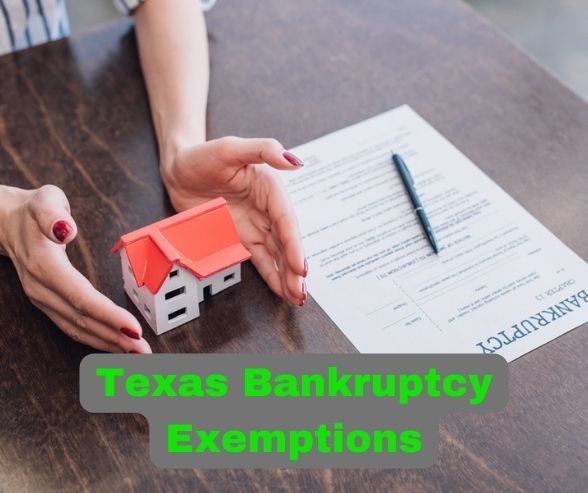Bankruptcy Exemptions In Texas
Texas Bankruptcy Homestead Exemptions
You can look at the Texas bankruptcy exemptions chart to see whether you can protect the property you value from creditors. Everything you own is placed into a bankruptcy estate when you file for bankruptcy but exemptions let you keep some of your property without paying for it. However, you should remember that there are debts that cannot be erased through bankruptcy.
Texas has some of the most generous exemptions in the country.
Random YouTube Video No Association With This Website
Texas Chapter 7 Bankruptcy Exemptions
In fact, most Texans who file a Chapter 7 Bankruptcy get to keep everything they own.
Chapter 13 Exemptions
 The Chapter 13 filers in most cases do not have to worry about paying for non-exempt property. You have the choice of using the federal exemption statutes instead of the Texas exemptions.
The Chapter 13 filers in most cases do not have to worry about paying for non-exempt property. You have the choice of using the federal exemption statutes instead of the Texas exemptions.
However, you cannot mix the Texas exemptions with Federal statutes because you have to choose one scheme. Any equity you have in the property is subject to an exemption limit. The difference between the value of the property and what is owed on the property is what is called equity. For instance, if the value of your motorcycle is $5,000 with a loan of $4,500, the equity value of that motorcycle is $500.
You can keep property that is secured by a loan if you decide to file for bankruptcy. This will be much easier if you are current on the payments and the equity is covered by exemptions. Your trustee will liquidate any asset not covered by your exemptions and distribute the proceeds to your creditors.
Often if you are a married couple, bankruptcy law allows you to file jointly to each claim a full set of exemptions. The Texas bankruptcy exemptions include:
What Are The Exemptions For Bankruptcy In Texas?
Homestead Exemption
In Texas, the homestead exemption is unlimited for a residence that does not exceed 10 acres in town, city or village or 100 acres in the country (for families this doubles to 200 acres). If you sell your house, the sale proceeds are exempt for 6 months after sale (Property 41.001, Property 41.002).
Personal Property
You can exempt athletic and sporting equipment including 2 firearms; bicycles; home furnishings (heirlooms included); clothing; food; jewelry (not to exceed 25% of total exemption); 2,3, 4 wheeled motor vehicles, several animals and more ( Property 42.001, Property 42.0002)
Insurance
The exemptions include life insurance present value if you, the beneficiary, is debtor or debtor’s dependent. Retired public school employees’ group insurance and Texas employee uniform group insurance. There are also exemptions like the Texas public school employee group insurance and Texas state college or university employee benefits (Insurance 3.50-4(11)(a), 3.50-4(11), 1575.006, 1551.011, Insurance 3.50-3(9) (a)).
Pensions
Pensions and retirement accounts are often exempt. This includes pensions for Judges, law enforcement officers, firefighters, emergency medical personnel survivors, teachers and police officers. The pensions for municipal employees, elected officials and state employees are also exempt.
Wages
Exemptions include earned but unpaid wages and unpaid commissions not to exceed 25% of total property exemptions (Property 42.001(b) (1), Property 42.001(d)).
These are only some of the exemptions in the exemption chart. Your lawyer can help you explore the Texas Bankruptcy law for more information on filing bankruptcy in Texas.